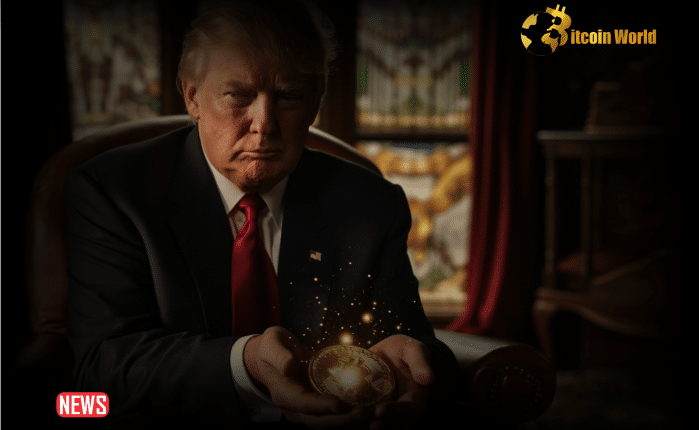Donald Trump Accepts Crypto Donations
The Beginning of a New Era in Political Fundraising
What Does This Mean for the Future of Campaign Finance?
Donald Trump’s presidential campaign made history this week by becoming the first major party candidate to accept cryptocurrency donations. This move has sparked a lot of speculation about the implications for the future of political fundraising and the broader implications for the cryptocurrency market.
At a recent event at Mar-a-Lago, Trump signaled his support for digital currencies like bitcoin and ether, stating that he sees them as the future of finance. This announcement has generated a lot of excitement among crypto enthusiasts, who see it as a validation of their beliefs in the power and potential of blockchain technology.
However, some skeptics have raised concerns about the implications of allowing cryptocurrency donations in political campaigns. Critics argue that it could open the door to foreign interference in U.S. elections, as it is more difficult to trace the original source of crypto donations compared to traditional forms of payment.
Despite these concerns, many believe that Trump’s decision to accept crypto donations will have a positive impact on the industry as a whole. It could lead to greater mainstream adoption of digital currencies and increase their legitimacy in the eyes of the public.
How Will This Affect Me?
As a regular citizen, the acceptance of cryptocurrency donations in political campaigns could have a number of implications for you. It could lead to greater transparency in campaign finance, as blockchain technology makes it easier to track donations and ensure they are not coming from illicit sources. It could also increase the influence of individual donors, as it is easier for small contributors to make donations in cryptocurrency.
How Will This Affect the World?
On a global scale, the acceptance of cryptocurrency donations by a major political candidate like Donald Trump could have far-reaching implications. It could lead to increased adoption of digital currencies in other sectors of the economy, as businesses and consumers see them being used in mainstream political campaigns. It could also lead to greater regulatory scrutiny of the cryptocurrency market, as governments seek to ensure that it is not being used for illegal purposes.
In Conclusion
Overall, Donald Trump’s decision to accept cryptocurrency donations is a significant milestone in the evolution of political fundraising and the broader adoption of digital currencies. While there are concerns about the potential risks, many see it as a positive step towards greater transparency and innovation in the way campaigns are funded. Only time will tell what the long-term implications will be, but one thing is clear: the future of finance is looking increasingly digital.





